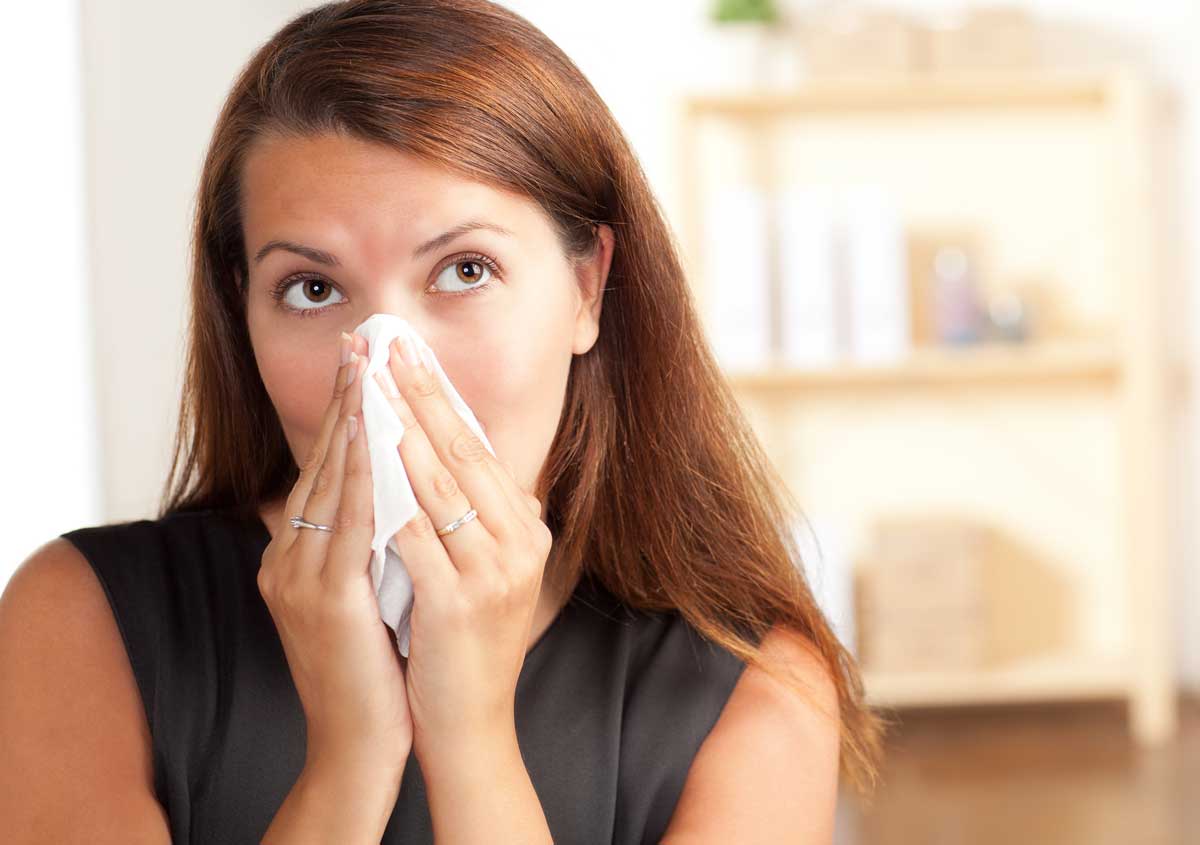Crystal Lake Allergist explains the symptoms and treatment of a dust allergy for patients in Elgin area

Allergic rhinitis is a medical term for the inflammation of the nasal passages due to an allergen. It affects about 20 percent of Americans and is one the most common illnesses in the United States. While symptoms of allergic rhinitis can occur at any age, they occur most often before the age of 30. Allergic rhinitis can be restrictive for patients and have a major impact on daily activities.
Symptoms of Allergic Rhinitis
The symptoms of allergic rhinitis usually affect the eyes and nose. The allergy may be seasonal (caused by changes in the grass, weed, mold, and pollen) or it may be year-round, as is the case with those caused by dust mites, pet dander, and mold.
What are dust mite allergies?
Patients with a dust mite allergy are allergic to the small, microscopic bugs that are found in household dust. Symptoms may include itchy, watery eyes, runny nose, nasal congestion, coughing and sneezing along with some of the signs of asthma including difficulty breathing and wheezing.
The severity of dust mite allergies can range from mild (occasional runny nose and sneezing) to severe (chronic cough, congestion, and sneezing, or severe asthma). Because these symptoms mimic a common cold, it can be hard to know if there is a true allergy. If symptoms are present for over a week, patients should visit an allergist for an evaluation.
Treating dust mite allergies
The most important step in treating a dust mite allergy is reducing exposure. The less exposure, the fewer and less severe the symptoms. Since it’s impossible to completely avoid dust, certain medications can minimize symptoms. Some of the most common include antihistamines, corticosteroids, and decongestants.
If you are in the Elgin or Crystal Lake areas, please contact us at (847) 888-8802 to learn more about the treatment of allergic rhinitis.
Share this Article
Back to Allergy Treatment Page








